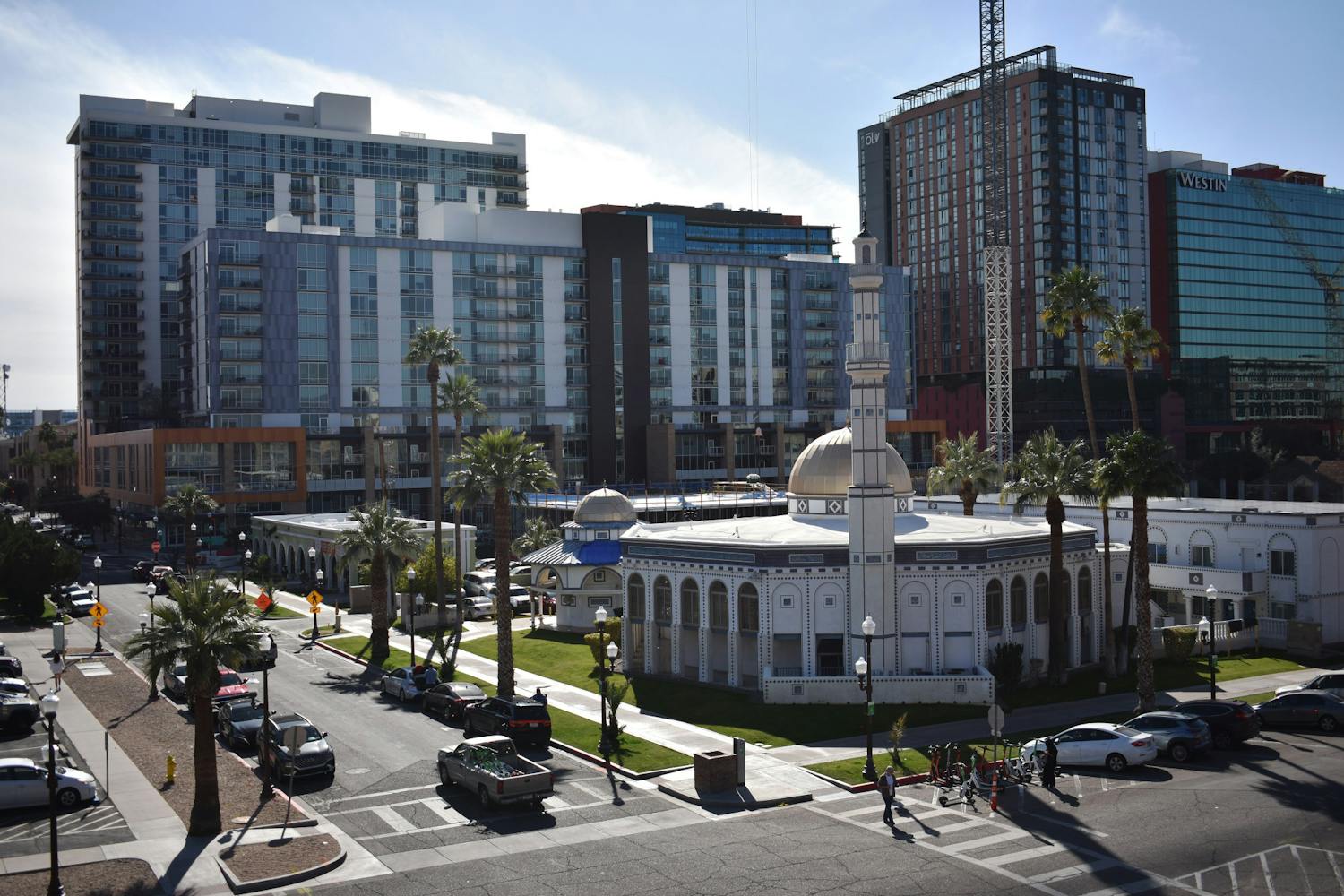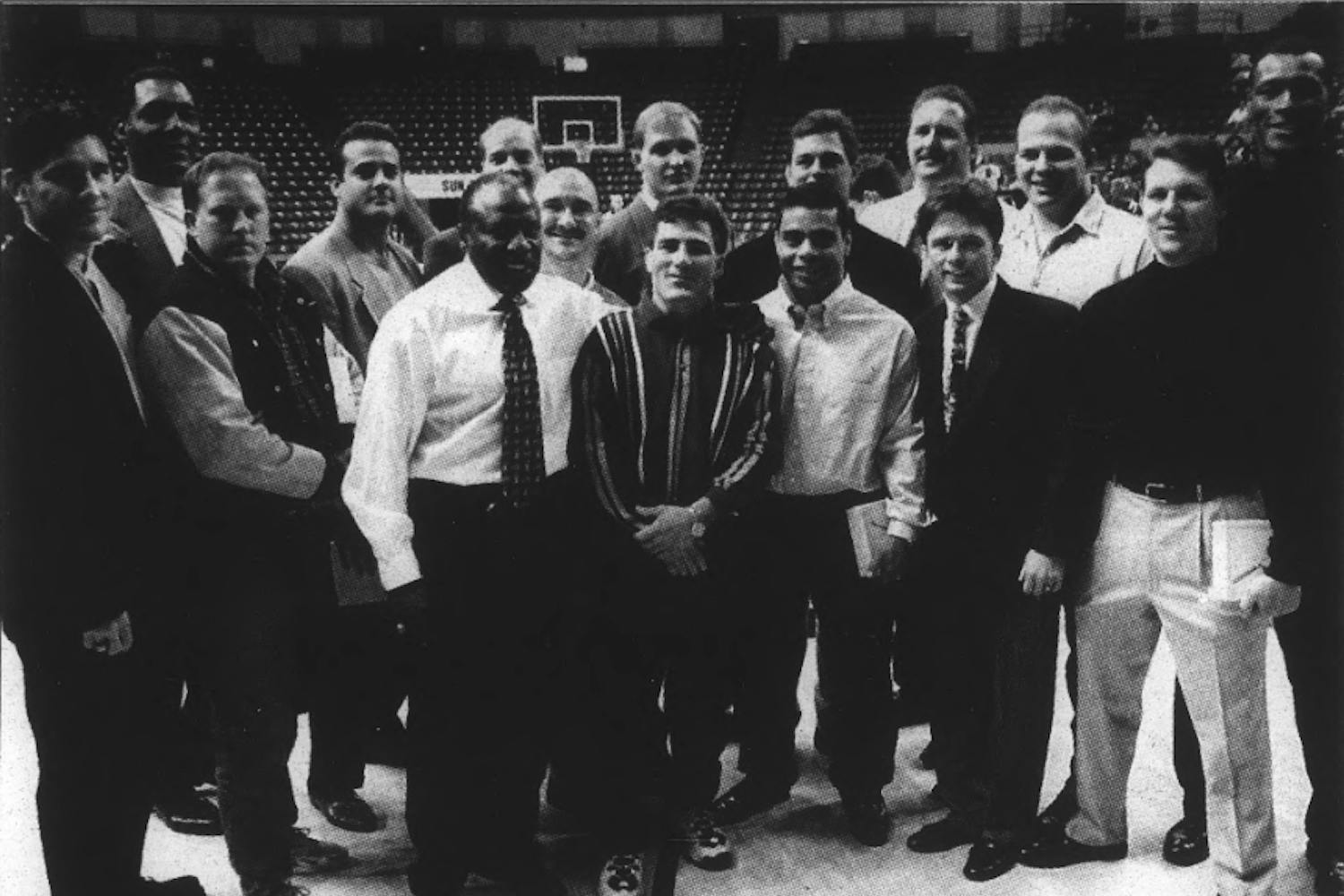Ish Masud, a 19-year-old economics junior from Bangladesh, has never lived with terrorism, but after Sept. 11, he experienced negative attitudes toward Muslims. The year 2001 was difficult, said Masud, a member of the Muslim Student Association.
"I remember we had held a peace rally that year which got really tense," Masud said. In 2001, Hillel, a Jewish club on campus, held a counter-rally 100 feet away in front of the Memorial Union. "There were people yelling at each other back and forth. People started chanting."
Masud sometimes uses humor to shrug off Muslim stereotypes. "One time, me and my guy friends were driving down the street, and this dude pulled up to the curb and was like, 'Hey does your dad own the 7-Eleven down there?' And we were just like, 'No, he owns the one over there.' What can you do? You've got to use humor."
When Masud was 7, his parents moved from Bangladesh to America to provide a better life for him and his older sister. His mother, who is deeply religious, taught him to not be ashamed of his faith. She has also taught him not to force his beliefs or ideas on others.
Masud thinks a lot of terrorism arises from anti-American attitudes. "I absolutely cannot understand why people move to the United States and then criticize the United States," he said. Although he doesn't agree with President George W. Bush's foreign policies, he isn't anti-American.
"As a Muslim, I think terrorism is something the Muslim world needs to deal with internally," Masud said. "There's something wrong when people are sending their kids off to camps to die, to blow themselves up."
One common misperception is that all Muslims are terrorists. According to Deedra Abboud, executive director of the Arizona office of the Council on American-Islamic Relations, moderate Muslims consider it a sin to kill anyone or anything that is not trying to hurt you. There are 1.2 billion Muslims worldwide, she said. If 10,000 of them were terrorists, that would be only one out of every 120,000 Muslims.
Although Islamic extremists use religion to justify feelings of helplessness that come from living under government oppression, Abboud said their motivation is partly political. In Palestine and Chechnya, for example, extremists think the only way to get America's attention is through the media.
"If they burn an American flag, it makes the American news," she said. "To them, American news is the only news that matters."
------
In America, you can go for a swim, leave your bag of belongings on the beach and forget about it. In Israel, this could be a deadly mistake.
"What they'll do is they'll explode your bag" if it looks like a bomb, said 23-year-old Eldad Engelman, who is taking classes at ASU to prepare for law school. "That happened to me. I'm very forgetful with my items."
On a trip to Israel, Engelman left his bag on a beach near Tel-Aviv while he went swimming and had drinks with friends. "When I came back, there was this big ordeal," he said. "Everyone was standing back, and they blew up a bag, and it ends up being my bag. Towels and my ID. Thank God my passport wasn't in there. I felt really bad."
Israeli police are always prepared for the unexpected, said Engelman, who wears the Star of David on a gold chain around his neck. A special bomb unit will explode any object that could be a bomb. The police do so very carefully to make sure the explosion doesn't hurt anyone. But dealing with terrorists is "very dangerous and scary," he said.
The tall, Israeli-born student left his homeland at the age of 4, when his family moved to Miami to be with his great-grandfather, who was ill. His mother fell in love with America because of the absence of terrorist attacks, which were common in Israel.
Engelman said the Sept. 11, 2001 terrorist attacks in New York and Washington, D.C. didn't affect Israel, where bombings are common.
"I think America after Sept. 11 got a real feel for what Israel has to deal with every day," he said. "I think Sept. 11 also opened the eyes of the world not only to see what's going on in Israel but also to see that terrorists are all around us."
Once, when he and his family were driving through Palestinian territory to the Tel-Aviv airport, their car was shot at. "I just remember hearing the bullets going through," Engelman said.
The number of terrorist attacks increased worldwide last year. The 2003 U.S. State Department's annual Patterns of Global Terrorism report states that 208 terrorist attacks left 625 people dead.
In 2002 there were 199 terrorist attacks, killing 725 people.
An MSNBC News analysis reveals that 58 percent of the 2,929 terrorism-related deaths around the world since Sept. 11 have taken place this year alone.
Engelman hasn't been back to Israel since Sept. 11, but he's planning to return for an eight-week training session for the Israeli army in December or early spring. He wants to join the army to fight terrorism.
Engelman has learned to live with the threat of terrorism.
"You've got to live like an Israeli," he said. "You don't end your life. You got to live it to the fullest."
Stephanie Anderson is a senior in the Walter Cronkite School of Journalism & Mass Communication. Reach the reporter at stephanie.anderson@asu.edu.



